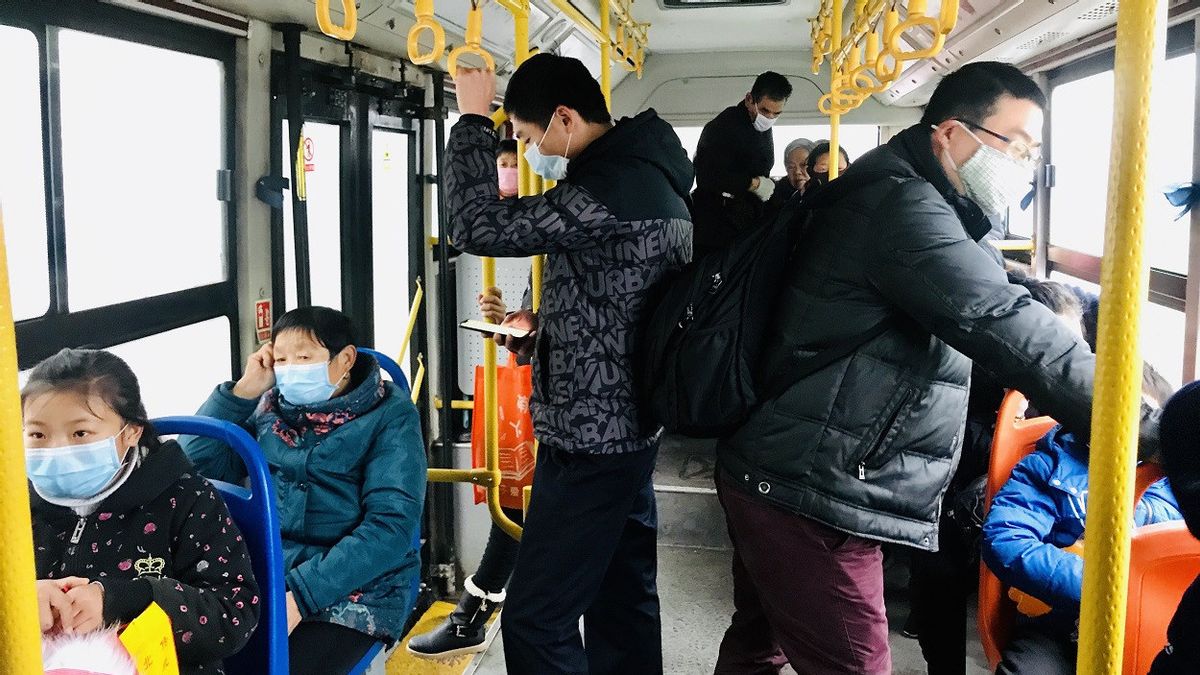JAKARTA - Beijing and several other major Chinese cities reported record COVID-19 infections on Monday, putting authorities under greater pressure to contain the outbreak quickly while trying to reduce the impact on people's lives and economic activity.
Nationally, 16,072 new locally transmitted cases were reported by the National Health Commission, up from 14,761 on Sunday and the highest in China since April 25, when Shanghai was battling its most serious outbreak.
Beijing, Chongqing, Guangzhou, and Zhengzhou all recorded their worst days so far, though in the capital's case the number was only a few hundred cases, while other cities counted in the thousands.
The caseload is very small compared to the infection rates found in other countries. However, China's insistence on eradicating the outbreak as soon as it emerges under its zero-COVID policy has increased the impact on society and the economy.
Beijing reported 407 cases on Monday, compared with 235 the previous day. In the southern city of Guangzhou, new local transmission cases stood at 4,065, compared with 3,653 the day before.
Meanwhile, the main manufacturing hub Zhengzhou in central China reported 2,981 new infections compared to 2,642 the day before.
Chongqing, the southwestern city of more than 32 million people, also saw a jump in cases to 2,297 compared with 1,820 the previous day.
Last Friday, the National Health Commission updated its COVID rules in the most significant easing of restrictions to date, describing the changes as "optimizing" its measures to reduce the impact on people's lives.
While individuals, neighborhoods, and public spaces can still be locked down to prevent the spread of the outbreak, the commission relaxed some measures, including shortening quarantine times for close contacts.
Secondary close contacts are no longer identified and put in isolation, a major inconvenience for people caught up in contact tracing efforts when a case is discovered.
Areas deemed at risk of a wider outbreak are now categorized as "high" and "low", removing the "moderate" category to minimize the number of people trapped in control measures.
Despite the easing of restrictions, many experts say the measures are gradual, with some predicting China is unlikely to start reopening as soon as after March's parliamentary session.
SEE ALSO:
"Currently COVID cases are increasing in major cities such as Guangzhou and Chongqing, and the zero-COVID policy continues, suggesting a downside risk to the near-term growth outlook", analysts at US investment bank Goldman Sachs said in a note on Monday.
According to Goldman Sachs, "the government is likely to embark on China's final exit from more than three years of zero-COVID policies" following the parliamentary session in March, assuming all medical preparations and communications have been made.
The English, Chinese, Japanese, Arabic, and French versions are automatically generated by the AI. So there may still be inaccuracies in translating, please always see Indonesian as our main language. (system supported by DigitalSiber.id)


















